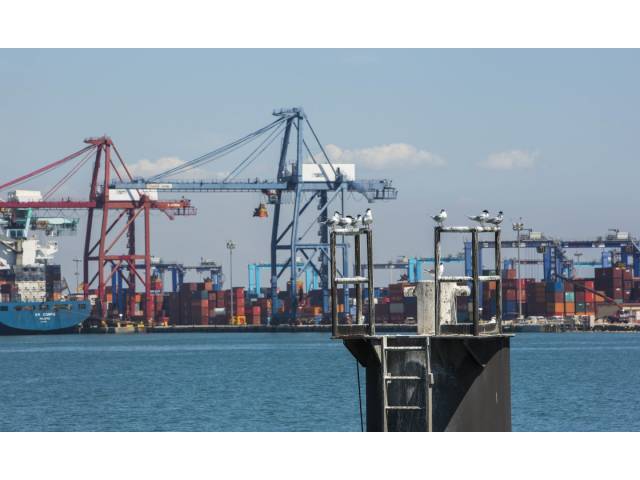Valenciaport holds the first position of “Smart Port” according to a report published in the civil engineering magazine CEDEX
It is the port in the Spanish port system with the highest score in the Environmental and Social categories measuring the city – port relationship and respect for the environment and sustainability
In environment category is more than 9 points ahead of Huelva, which is in second position, 15 points ahead of Barcelona and 36 points ahead of Algeciras
In the social indicator, it obtained 82.24 points out of 100, surpassing Vigo (77.83), Algeciras (70.24) or Barcelona (67.76)
Valenciaport is in the first position of “Smart Port” in the Spanish port system according to a report published in the civil engineering magazine CEDEX, which evaluates 32 parameters grouped into 4 categories: economic-operational, social, political-institutional, environmental, to which must be added the degree of digitalisation.
Valenciaport leads the Spanish ranking of intelligent ports with a total score of 299.47. In the group of pillars evaluated, Valenciaport is positioned among the first three places in the Top 10 when any of the categories are considered: Environmental (67.73), Economic-operational (88.83), Social (82.24), Political-institutional (60.67) and Degree of digitalisation (70.26).
In addition to the total score, Valenciaport leads the Environment and Social categories.
The Port Authority of Valencia has highlighted the “strategy that we have been developing for years to place our facilities at the forefront of new technologies to improve the service with our clients and users, to promote sustainability through actions aimed at respecting the environment and to favour the relationship and integration between city and port”.
Thus, the APV continues to work on this strategy to consolidate Valenciaport as a reference hub as stated in the objectives of the APV’s new Strategic Plan for 2030: new business opportunities and technological development; energy transition, decarbonisation and the fight against climate change; digital transformation; innovation; and the Port-City relationship.
References in environmental and social matters
In environmental matters, the APV has a firm commitment to 2030, zero emissions, with a plan that contemplates actions such as the electrical substation that allows the connection of ships berthed in port to the network and the corresponding reduction of emissions, the installation of new air emission cabins, the use of hydrogen in the terminals or the installation of photovoltaic panels, among others. In terms of social parameters, Valenciaport continues to work on new solutions for safety, protection and emergency management or the continuous improvement and training of workers. An example of this commitment is reflected during the emergency situation generated by the Covid-19 where the port activity has continued its work to ensure the logistics chain with full safety guarantees for the port community. Likewise, the responsibility of the APV and the companies in its surroundings with the concerns of the population closest to the port of Valencia should be highlighted with initiatives such as APORTEM, or the city-port integration with actions such as the special plan for Nazaret, planned jointly with the City Council, with the transfer of port land for the city.
The Environmental category of the CEDEX report measures the following parameters:
- – Water quality
- – Environmental management systems
- – Sustainable waste management
- – Automation of air quality assessment
- – Noise pollution
- – Renewable energy production
- – Management of electricity consumption
- – Fuel use
- – Water consumption management
Valenciaport was the first Spanish port in this category with 67.73, followed by Huelva (58.44), Tarragona (57.01) Barcelona (52.77), Bilbao (50.64), Vigo (48.57), Cartagena (48.43), Gijón (44.88), Las Palmas (36.33) and Algeciras (31.59).
The Social category of the report measures the parameters:
- – Workers’ safety
- – Digitisation of access security
- – Employee training
- – Labour inclusion and equality in the workforce
- – Accessibility to the port for disabled users
- – Digital customer interaction
- – Concern for public acceptance
The Port of Valencia led this category with a total score of 82.84, followed by Vigo (77.83), Algeciras (70.24), Barcelona (68.08), Bilbao (61.39), Tarragona (60.27), Gijón (58.10), Huelva (50.10), Las Palmas (38.51) and Cartagena (38.41).









































